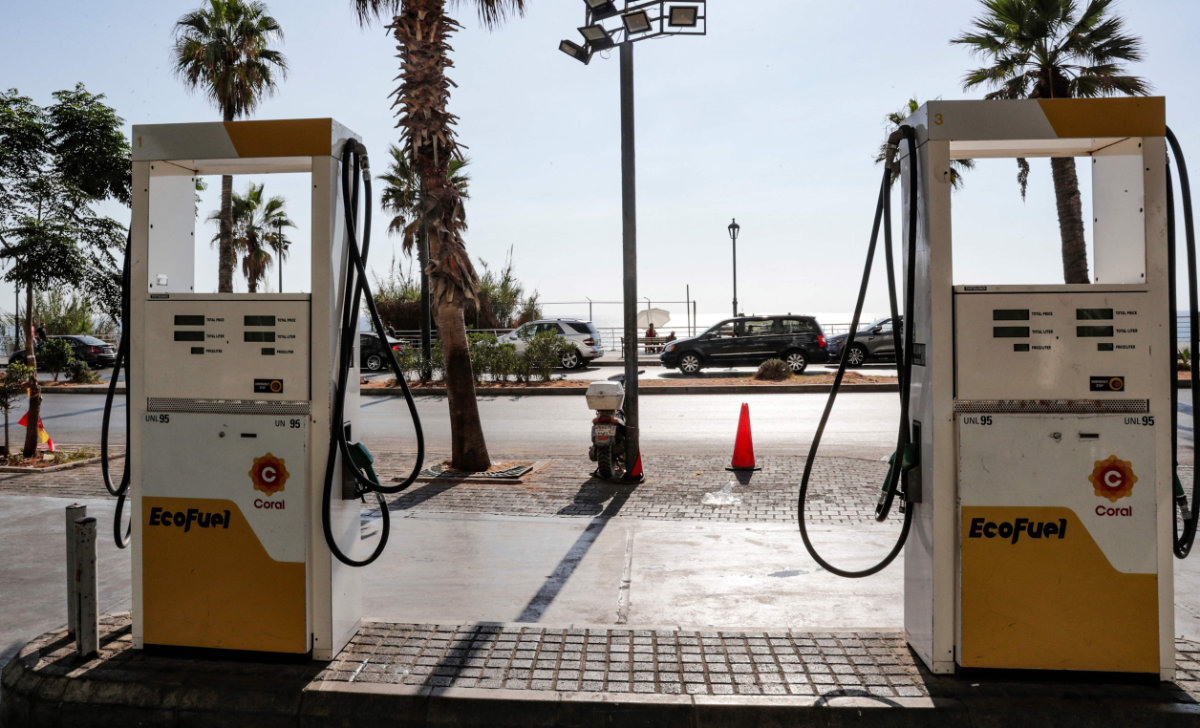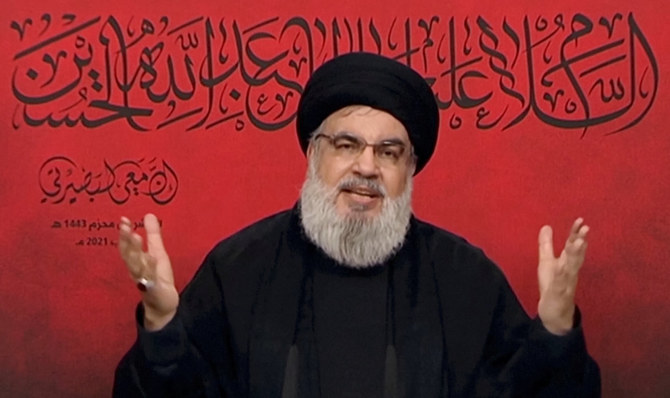BEIRUT: Lebanese political leaders on Thursday warned of dire consequences for the country should Iran make good its supposed promise to deliver oil.
Hezbollah leader Hassan Nasrallah earlier in the day said the group had asked for help from Iran and an oil tanker was set to sail “within hours” on Thursday.
Nasrallah cautioned the US and Israel against making any attempts to halt a delivery he said is intended to ease an acute fuel crisis.
If it goes ahead, the delivery would be a violation of US sanctions imposed on Tehran. But Nasrallah said the tanker, carrying diesel, will be followed by others and accused US authorities of “waging an economic war on Lebanon.”
Saad Hariri, Lebanon's former prime minister, said “the Iranian ships will expose the Lebanese to more risks and sanctions.”
He criticized Nasrallah for declaring the ships to be Lebanese territory and rejected what he described as Lebanon being treated as an Iranian province. He warned that the country could suffer a fate similar to that of heavily sanctioned Venezuela.

A Coral petrol station in Beirut lays idle on August 19, 2021 amid severe fuel shortages that have brought the crisis-hit country to a halt. (AFP)
Hariri also accused Iran of “obstructing the formation of a government in Lebanon,” saying “otherwise, how does it allow itself to violate the international laws by sending ships to Lebanon without the approval of the Lebanese government?”
Mark Ayoub, an expert on energy affairs in Lebanon and the Middle East, told Arab News: “We still don’t know the process that is going to be adopted to get the Iranian ships to Lebanon; will the Lebanese state be a part of it and choose international sanctions, or will Hezbollah assume responsibility?”
Leaked information, said to be from sources at the Energy Ministry, indicates that “no official request has been made to the ministry to obtain permission to import Iranian oil to Lebanon, by land or by sea, or for its discharge, storage and distribution.”
In comments directed at Lebanese president Michel Aoun, who is an ally of Hezbollah, Samir Geagea, president of the Lebanese Forces party, asked: “Will you leave Hezbollah, which has already usurped government authorities in security, military and strategy affairs, to take over the economic decision making as well?”
Samy Gemayel, the president of the Kataeb party, said: “There is no siege on Lebanon, as Nasrallah claims — but there will be soon, because of him, and he will also bring us sanctions.”
Meanwhile Aoun received a phone call from Dorothy Shea, the US ambassador to Lebanon, on Thursday informing him of Washington’s decision to support Lebanon by providing Egyptian natural gas to Jordan. It will be used to generate additional electricity that can be distributed to Lebanon via Syria.
Shea said her country is making “tremendous efforts” to achieve this and added that negotiations with the World Bank are continuing in an effort “to secure financing for the cost of the gas, as well as repairing, reinforcing and maintaining power lines and gas pipes.”
Najat Rushdie, the UN’s deputy special coordinator for Lebanon, spoke of her “deep concern over the potential impacts of the fuel crisis on access to healthcare and water supplies for millions of people in Lebanon.”
She warned: “The bad situation will only get worse unless an immediate solution is reached.”
Hamad Hassan, Lebanon’s health minister and a representative of Hezbollah in the caretaker government, announced the “granting of four emergency permissions to licensed pharmaceutical companies to import medicine, to compensate for shortages.”
Recent developments in Lebanon have slowed the latest attempts to form a new government. Prime Minister-designate Najib Mikati said his efforts to achieve this will continue. This came after Aoun complained that unnamed parties were seeking to delay the process and force Mikati to resign.



























